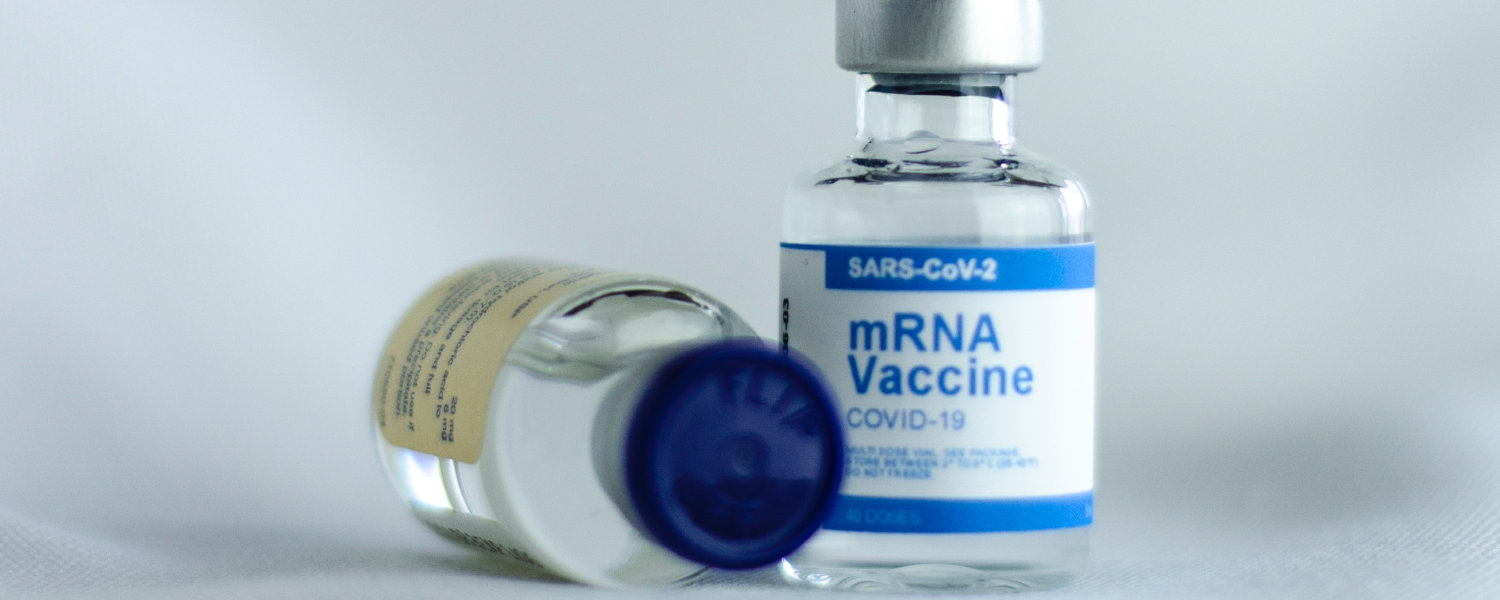In This Article
- Is Smoking Weed with a Cold Safe?
- Can I Smoke Weed While Sick?
- Risks and Benefits of Using Cannabis With a Cold
- Risks and Benefits of Using Cannabis with the Flu
- Can You Take Weed with Cold Medicine?
- Can You Smoke Weed While Taking Flu Medicine?
- Weed Alternatives and Best Practices for Cannabis Use When Sick
- References
Key Takeaways
- Smoking cannabis with a cold or the flu can aggravate symptoms.
- Cannabis and cold/flu medications may interact.
- Alternative cannabis products can provide symptom relief.
Is Smoking Weed with a Cold Safe?
Is it a cold? The flu? You're coming down with something, and you don't feel well. Either way, it's a virus—an influenza virus or one of more than 200 viruses that trigger a cold.1 Both are respiratory illnesses, with symptoms like fatigue, sore throat, and stuffy nose, although the flu tends to feel more intense.
Your doctor may recommend a prescription or over-the-counter medications mixed with self-care remedies (chicken soup, perhaps?). What doctors won't recommend is drinking alcohol or smoking with a cold—but is smoking weed while sick just as bad?
Can I Smoke Weed While Sick?

One of the reasons people use cannabis, either medically or recreationally, is because it makes us feel better. Before you reach for cannabis along with your Kleenex, consider there are reasons it might make you feel better—but it might make you feel worse.
There’s no specific research weighing the benefits and risks of smoking cannabis during an episode of the cold or flu. Smoking cannabis when you’re sick won’t necessarily make your cold or flu worse, but it can tax your respiratory system.
Inhaled cannabis smoke can irritate the mouth, nose, throat, and lungs, exacerbating cough, sore throat, and congestion symptoms. It’s important to note that cannabis smoke hasn’t been conclusively linked to cancer in humans.There’s no specific research weighing the benefits and risks of smoking cannabis during an episode of the cold or flu. Smoking cannabis when you’re sick won’t necessarily make your cold or flu worse, but it can tax your respiratory system.2 However, although smoking cannabis can provide relief of certain symptoms, it can also aggravate breathing symptoms.3
The flu can be more severe than a cold, and there is a greater chance of complications. Cannabis may intensify certain other symptoms, like dehydration, fatigue, and dizziness.
On the other hand, nausea, which is also a common flu symptom, can be alleviated with cannabis. In a survey of cannabis users treating nausea, 96.4% experienced symptom relief within one hour after vaping or smoking. High-THC, low-CBD flower relieved nausea within five minutes.4
Additionally, cannabis can interact with certain cold and flu medications.
Risks and Benefits of Using Cannabis With a Cold
The common cold spreads through unique viruses transmitted when an infected person coughs, sneezes or breathes.5 When these droplets enter the respiratory system, the cold virus begins to attack.
Once you've been infected, cold symptoms appear in 2 to 3 days. There's no test to diagnose a cold. Doctors rely on the appearance of symptoms like a low fever, runny nose, congestion, or sore throat to diagnose a cold.
Cold symptoms can last several days. Patients typically treat symptoms with over-the-counter medicines for pain, cough, congestion, rest, hydration, and home remedies.
Should one of those remedies be cannabis? Study results are mixed.
Cannabis does have medicinal properties that can aid with cold symptoms. It can promote relaxation and sleep and relieve body aches and pains.
Cannabinoids, natural components in cannabis, might help the body fight a cold at a molecular level. Simply put, a cold is a viral infection. The antiviral and anti-inflammatory effects of cannabis may activate cannabinoid receptors to combat symptoms and decrease the duration of the cold.3
Research on how terpenes transmit their effects is evolving, but it’s believed the entourage effect may help cannabinoids and terpenes target illness issues.
Does smoking make a cold worse? Researchers acknowledge recurring cannabis use can increase chronic cough and phlegm production, which might not be ideal during a cold.5
If you’re trying to decide if you’ll use cannabis when you’re ill, consider the severity of symptoms, dosage, and other ongoing health concerns—and the cannabis consumption choice. Since smoke can be irritating or exacerbate cold symptoms, it might be best to avoid smoking cannabis flower.
You can get the benefits and relief of cannabis without the potentially harmful effects of smoking by using tinctures, edibles, or capsules. Vapes, although deemed a healthier alternative to smoking, still impact the lungs and may not be helpful during a cold.
Risks and Benefits of Using Cannabis with the Flu

The flu and cold share some symptoms but differ in others. Flu symptoms may include a fever, but this isn't always the case. Additional signs of the flu may include chills, headache, nausea, and lack of energy. Symptoms usually fade within 2 to 4 days. Remaining cold-like symptoms, like coughing, runny nose, sneezing, and sore throat, may linger for several more days.
Cannabinoids' medicinal benefits include antiviral and anti-inflammatory protection, and they may also impede the progression of the flu.
All the terpenes that may help with cold symptoms benefit flu sufferers, including anti-inflammatory caryophyllene, humulene, and myrcene, plus sleep-promoting linalool.6,7 Nausea symptoms respond positively to caryophyllene and limonene.8
Inhaling cannabis smoke can irritate throat and lung symptoms, especially in higher doses. Choosing alternative cannabis products, including edibles, tinctures, or capsules, avoids potential lung irritation.
Since complications of the flu can raise the severity of the symptoms, the choice to consume cannabis should be made carefully. Tolerance to cannabis while ill can vary. Check with a physician before using cannabis, especially if using prescribed or over-the-counter medications.
Can You Take Weed with Cold Medicine?
Use caution before reaching for over-the-counter medications (like pain relievers, nasal decongestants, antihistamines, and cough suppressants) if you're consuming cannabis for a cold. Cannabis may amplify the effects of some cold medications due to interactions with their main ingredients.
NyQuil® is a typical all-in-one, over-the-counter cold medication. The active ingredients include acetaminophen, dextromethorphan, and doxycycline, which may cause stomach pains, nausea, dizziness, and drowsiness. Although the risk is considered moderate, all forms of cannabis may increase the risk of intensifying these side effects, causing reactions ranging from uncomfortable to severe.
It's always recommended to check with a healthcare professional before mixing cannabis with any medication, including cold medicines.
Can You Smoke Weed While Taking Flu Medicine?

Depending on the severity of the flu, some patients require antiviral medication to help reduce fever and speed up recovery.
There is no current research opinion on whether or not cannabis directly interacts with the main ingredients in prescription antivirals. However, side effects of traditional antivirals include nausea and joint pain. Although cannabis may help alleviate these side effects, other side effects like dry mouth or dizziness may be magnified by the combination.
Mild flu cases may be treated with at-home remedies and over-the-counter medication. The ingredients in these may cause increased drowsiness, which can be intensified when mixed with cannabis.
If prescribed antivirals for the flu, consult with your physician before using cannabis. The flu can be dangerous for older adults and individuals with pre-existing conditions or a weakened immune system. Complications like pneumonia or bronchitis can be exacerbated by smoking cannabis.
Although the risk of using alternative cannabis products like edibles or tinctures with the flu is considered low to moderate, follow your doctor’s recommendations to avoid uncomfortable adverse effects.
Weed Alternatives and Best Practices for Cannabis Use When Sick
There are two primary considerations in using cannabis with a cold or flu: giving your respiratory system a chance to heal and interactions of cannabis with prescription or over-the-counter drugs.
Although cannabis can be anti-inflammatory and offer pain and sleep relief, some choose to avoid smoke in the upper respiratory tract while ill.
Inhaling smoke can cause or aggravate symptoms like coughing and congestion. Most doctors recommend avoiding smoke if you have a cold or the flu.
Using a vape when the lungs are inflamed or mucus-filled can be irritating. It’s advisable to use different forms of cannabis consumption if you have a cold or the flu.
The second concern is cannabis' interaction with cold and flu medications. Combining these medications with cannabis may hinder the medicine’s effectiveness or uncomfortably intensify their side effects. Consult your doctor and read any warnings or dosing instructions before using commercial cold and flu preparations along with cannabis.
In general, consider alternative consumption methods to smoking during a cold or flu. All forms of edibles, tinctures, capsules, and topicals may help relieve certain symptoms.
For example, infused honey in lemon tea may soothe a sore throat, or in chamomile tea to get better rest. A dose of tincture in a mug of chicken soup might help provide fluids and loosen chest congestion. You might not think of topicals for a cold or the flu, but the direct application may help target specific body aches. A warm bath with a CBD bath bomb could help you unwind before bed.
Whether you use prescription or over-the-counter medications, cannabis, or a combination of the two, don’t forget time-tested home remedies, including rest and drinking plenty of fluids.
If symptoms worsen, always seek medical care.
References
- Chow EJ, Doyle JD, Uyeki TM. Influenza virus-related critical illness: Prevention, diagnosis, treatment. Critical Care. 2019;23(1). doi:https://doi.org/10.1186/s13054-019-2491-9
↩︎ - Ribeiro LI, Ind PW. Effect of cannabis smoking on lung function and respiratory symptoms: a structured literature review. npj Primary Care Respiratory Medicine. 2016;26(1). doi:https://doi.org/10.1038/npjpcrm.2016.71
↩︎ - Jett J, Stone E, Warren G, Cummings KM. Cannabis Use, Lung Cancer, and Related Issues. Journal of Thoracic Oncology. 2018;13(4):480-487. doi:https://doi.org/10.1016/j.jtho.2017.12.013
↩︎ - Stith SS, Li X, Orozco J, et al. The Effectiveness of Common Cannabis Products for Treatment of Nausea. Journal of Clinical Gastroenterology. 2021; Publish Ahead of Print(56). doi:https://doi.org/10.1097/mcg.0000000000001534
↩︎ - Pappas DE. The Common Cold. Principles and Practice of Pediatric Infectious Diseases. 2018;199-202.e1. doi:10.1016/B978-0-323-40181-4.00026-8
↩︎ - Hanuš LO, Hod Y; Terpenes/Terpenoids in Cannabis: Are They Important?. Med Cannabis Cannabinoids. 2020; 3 (1): 25–60. https://doi.org/10.1159/000509733
↩︎ - Cui J, Li M, Wei Y, et al. Inhalation Aromatherapy via Brain-Targeted Nasal Delivery: Natural Volatiles or Essential Oils on Mood Disorders. Frontiers in Pharmacology. 2022;13. doi:https://doi.org/10.3389/fphar.2022.860043
↩︎ - Yavari Kia P, Safajou F, Shahnazi M, Nazemiyeh H. The effect of lemon inhalation aromatherapy on nausea and vomiting of pregnancy: a double-blinded, randomized, controlled clinical trial. Iran Red Crescent Med J. 2014;16(3):e14360. doi:10.5812/ircmj.14360
↩︎
The information in this article and any included images or charts are for educational purposes only. This information is neither a substitute for, nor does it replace, professional legal advice or medical advice, diagnosis, or treatment. If you have any concerns or questions about laws, regulations, or your health, you should always consult with an attorney, physician or other licensed professional.




